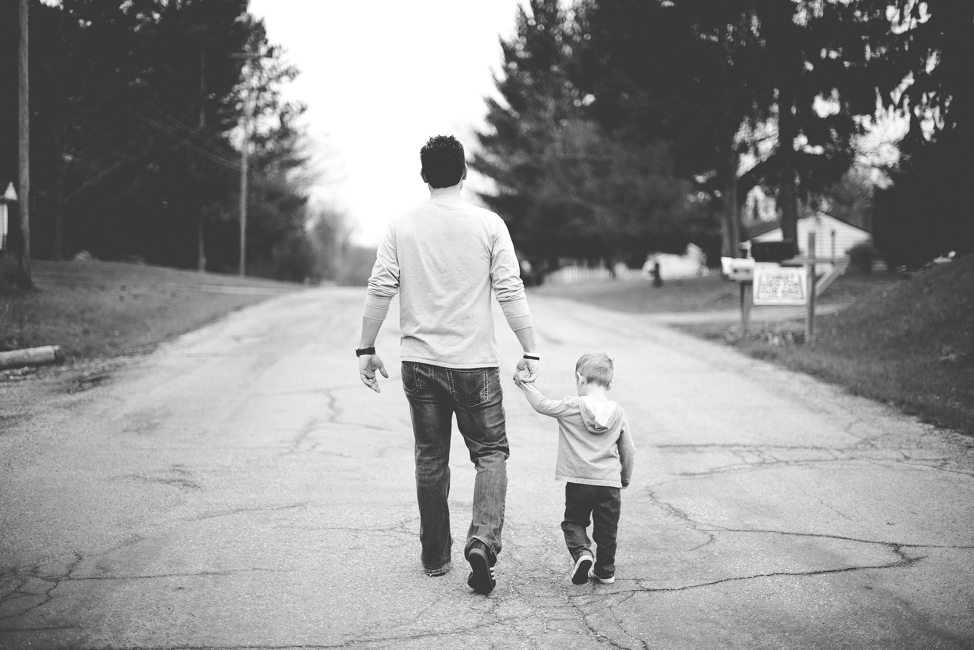While childhood grief is prevalent (8% of children lose one parent or sibling before age 18 according to a 2023 study) and represents an important risk factor for mental health problems in adulthood, it is often overlooked. Moments of grief are an opportunity for a community of parents, teachers, and administrators to come together with strength and thoughtfulness to support our children and each other. It is challenging but crucial to do this work with the proper knowledge and communication, to ensure that our children’s development can continue healthily and safely, even in the wake of tragedy and possibly our own grieving, too. Children experience and express grief differently than us, and as parents and teachers who care about our children, we should learn what to expect and how best to support them after a loss in the family or community. We can all be there for the children in our lives to support their well-being during challenging times. This post focuses on grieving in preschool through elementary school aged children, with both guidance for parents and teachers.
How to tell children news of a death
Parents
If your family has experienced a death, whether it be a human family member or a pet, avoid waiting to tell your child. While sharing timely news can be difficult and we may feel the need to shelter children, it can be extra painful or frightening for a child to hear such news accidentally from someone else. Try to give this news in a private place, where they can react in a genuine way. In the actual wording of the news, avoid any euphemisms such as “passed away” or “lost,” as young children can be very literal and euphemisms may give a confusing or inaccurate depiction of death. After giving the initial news, allow your child to take the lead and ask questions, so that you may meet them where they are. Do not be surprised if your child raises concerns or questions that seem strange or irrelevant to you, but rather answer in honest and age-appropriate ways. It is fine that you express your own sadness or cry, but if you are unable yet to control your emotions enough to speak clearly, it may be best to have another close family member or adult share the news. Depending on the situation, it can be helpful to explain to your child that death most often occurs in older individuals, to soothe any of the child’s concerns about their own health and make them feel safe.
Teachers
If one of your students has experienced loss in their family, you can reach out proactively by following these tips.
In a school community that has experienced loss, the adults of the school should decide a common way to share the news with children, likely decided upon by an administrator, counselor, or in a staff meeting. This ensures that all children are receiving the same information (adjusted slightly for age) in a thoughtful and factual way. In this agreed-upon language, again avoid euphemisms and ensure that children understand that they are safe at school. Tell the news in the morning, so that you can provide support throughout the day, rather than send students off to potentially feel isolated or confused. Allow time for students to ask questions and expect that students will be in very different places. Depending on your class, it may be helpful to have a school counselor or psychologist in the room to support during this time, or to even give the news if you feel unable to manage your emotions enough to speak clearly for the announcement. Make sure to watch closely for student body-language and those that may need additional support. It will be helpful to let families know when this conversation is happening, so that students can continue to be supported at home.
How young children grieve
As stated above, children express grief differently than we may expect. After learning of a death, many children may show a regression in behaviors, such as thumb-sucking, wetting the bed, or “baby talk.” They may experience changes in sleeping or eating patterns, or nightmares. With middle to older elementary students, you may see them role playing or engaging in more violent play. Older children additionally may express a lot of concern about their own bodies, health, or death.
It is additionally helpful to know what research tells us about young children’s understanding of death. A National Geographic article by Virginia Hughes highlights three core concepts of death of which children develop understanding generally with age: irreversibility, nonfunctionality, and universality. By the time they are 4, most children understand irreversibility, or the idea that once dead, someone cannot return to life. Between ages 5 and 7 is when children generally come to understand nonfunctionality -- the idea that once dead, people cannot do or feel anything. And usually the last to be understood is the idea of universality. Young children may think certain groups of people (parents, teachers, kids…) are immune to death, and are likely to first understand that some people die before realizing that all people will eventually experience death. While this is a general timeline of understanding these concepts, it of course varies greatly by a child’s lived experiences. By knowing some of the key ways in which we understand death, you can support your child’s learning of each.
How to support children during this grieving
Parents
While your grieving may feel more constant, expect to see your child go in and out of periods of grieving. They may be very upset for a period, and then proceed to want to play as normal. Throughout these shifts, it is important to stick to a routine and maintain some sense of normalcy. Continue to answer questions, acknowledge feelings, and memorialize the death, so as to avoid the risk of certain names or topics of death feeling taboo to your child. Mourning rituals such as funerals or memorials offer a space for us to share memories, comfort one another, and see close family and friends. Parents can also build in their own meaningful ways to memorialize a death and ensure that children have a space to speak and listen throughout grieving. It will likely also be helpful to share the news with the parents of your child’s friends and to have more “play dates” at your own home, so that you may watch for any sudden changes in behavior or conflicts. It may be difficult as time goes on and your family experiences important events or holidays with someone or something not present as before. Acknowledge those feelings on those days, but do not skip these important events.
Teachers
Whether you are supporting a whole class of students or an individual student who has experienced death, you should be very watchful for children’s behavior. Watch for any changes or notable behaviors, and communicate closely with families. Even if just to share good news of a positive day, this close communication is important. It is crucial to stick to your usual school day routine and structure, while also allowing for time and flexibility when feelings come up that need thoughtful one-on-one addressing. It may be helpful to schedule open, unstructured time slots for students who want to talk with you; even if students choose to talk about other subjects, this support from you can address underlying feelings of loneliness or confusion during grief.
For a school community loss, create a school-wide system for students needing additional support. Many school districts have a crisis-response team, which will work to bring more counselors to a school in need of support. If you notice one or two children struggling with their emotions or concentration, you may ask them if they would like to see those counselors. If your entire class is in need of more support and you need assistance, call a counselor to come to your classroom.
Throughout this all, remember that children are interacting with each other frequently without you knowing. This may be on the playground, at lunch, or just at their desks. Some have likely heard various pieces of information outside of school, so may begin spreading rumors or frightening information. Listen carefully. Emphasize to your students the difference between facts and rumors, dispel any rumors, and help students feel safe.
Remember that you are modeling how to grieve
Parents
It is healthy for you to show your feelings to your children, but also ensure that you are showing them how you then take care of yourself. See a counselor or professional help, and do not be afraid for your child to know. Ask for help from family and close friends, and surround your family with people or things that bring you all comfort. You may likely be grieving yourself, too, and it's important that you care for yourself so that you may extend care to your child. If you ever feel your emotions growing very strong, so much so that you may not be able to communicate with your child, that is a good time to go to a more private space and ensure somebody else is with your child. While these moments are normal and healthy, if you are left unable to communicate with your child, they may frighten your child or cause them to excessively worry about you.
Teachers
It is alright for you, too, to show your emotions in front of your class. You may cry or openly express sadness over a death in the school community, and that is normal and healthy. Just as above, if you are ever feeling overcome with emotions, call a school administrator or counselor to come to your classroom so you may excuse yourself. You need to care for your own health and address your own grieving, so that you can support children in your classroom. Consider seeking out professional counseling or other forms of self-care, to heal yourself in preparation for the challenging work back in your classroom.
Some signs that your child may need professional help
Professional counseling can be very helpful for children experiencing grief, regardless of how they are expressing it. If you have chosen not to pursue professional counseling, watch carefully for any behaviors from your child that signal the potential need for counseling:
Frequent nightmares
Detachment or withdrawal
Persistent anxiety
Persistent regression of behaviors
Refusal to go to school, learn, or be with friends
Ongoing depression
Suicidal thoughts
Behaviors lasting more than six months
Grieving is a part of our experience as humans. In the aftermath of tragedy, parents and teachers carry a lot of weight, including of course the weight of our own well-being and grieving. We hope that this post can support you, your family, or your school in helping children grieve. This process is difficult and will never look the same in any two situations, but may you have this one additional tool in your process of grieving and healing.
A prior version of this article was originally published on July 1, 2020.



